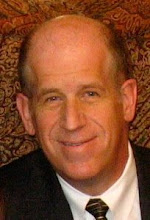In the Spring of 1783, the British had asked for negotiations for a peace treaty to end the Revolutionary War and the men of the Continental Army were starting to look forward to their return to their homes and families. When they signed up for battle, they had been promised pay and 100 acres of land so they began thinking about how they would use the land and spend the money. However, the word started getting out that Congress had no money or land to pay them and they were likely to go home with neither. The Continental Congress had no taxing authority to raise money and they did not own any land. They relied on the States to provide the money and land to provide the Army and the States had not provided that for various reasons. This was complicated by the fact that each State had their own currency which was for the most part worthless. People generally bartered goods or traded in British pounds. Most States and the Federal Government were near total bankruptcy.
Men were obviously agitated and there were some who were using this sense of frustration to encourage a mutiny. Some were calling for the States to grant additional powers to the Continental Congress to put down any disputes among the various factions. Others were calling for revolt, a march on Philadelphia and Congress, secession from the Union, or a military coup to take control of the Congress. Tensions were high and the country that had just won their independence was on the brink of total chaos and anarchy. In the midst of this growing anger and frustration, a meeting was organized by Horatio Gates and attended by several officers. In the meeting, 2 documents were handed out that were planned to be delivered to Congress. They demanded that Congress fulfill its promises to the soldiers or the Army would take control of the government or leave the Union altogether and leave the United States defenseless. A second meeting was scheduled where they invited all officers and hoped to gain the backing of the Continental Army for their pursuits.
George Washington learned of these plans and requested that the meeting be postponed a few days so he could attend. He asked that those behind the plans be in charge of the meeting but to allow him to speak. The organizers thought that Washington was sympathetic to their cause and gladly accommodated his request. At the meeting, Washington stepped to the lectern and calmly but forcefully spoke out against any plans that would break the fragile republic, urged calm and patience with Congress, and pleaded with the officers to not lose the gains they had sacrificed so dearly to achieve. After he sat down, a hush fell on the crowd of officers and a motion was made for a vote of confidence in General Washington which was passed unanimously. That speech by Washington and the resulting reaction of the officers likely saved the new Union.
There are several lessons we can learn from this incident. First, we need to act with patience and restraint when dealing with the weighty matters of this country. Congress had some very difficult issues to resolve and they needed time to resolve them in a deliberative manner. The only crisis that requires haste is when lives are in immediate danger. Second, we should be very wary of granting government additional powers in a crisis. Washington resisted any calls to use this crisis to have the States grant additional powers to the Federal Government. He understood that when we grant government additional power, it is difficult to get that power back. The power should be in the hands of the people. Third, Washington was able to quell the frustration and anger of these men because each member of the Continental Army implicitly trusted him. They had come to know him, his character, and his dedication to the cause of liberty. Above all else, we need to have trust in our elected representatives. When that trust is broken by corruption, spin, empty promises, or backroom deals, we are in danger. Our Congress and leaders today need to be most focused on regaining the trust of the American people. Trust cannot be gained in an instant or through a single speech. George Washington was able to change the course of our history with a single speech but that was backed by several years of honest actions. We the people should demand that our elected officials act with honesty and integrity worthy of our trust.
We have weighty issues today that require attention but they are not the first. We can learn much from our Founding Fathers in how to deal with a crisis. Do not act in haste, be wary of any attempt to grant additional powers to the government, and in all things, act with honesty and integrity.
Sunday, August 30, 2009
Subscribe to:
Post Comments (Atom)

No comments:
Post a Comment